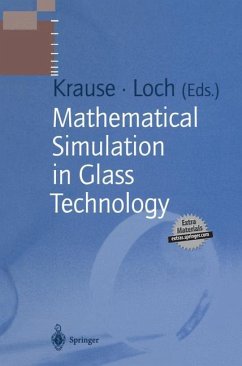This volume reports on a large variety of mathematical simulations, covering all production steps of special glass manufacturing: melting, fining, mixing, homogenizing, hot and cold forming, thermal treatment, post-processing. Modern, commercially available software packages have been used and - whenever necessary - modified to satisfy the special requirements and situations in liquid or solid glasses, or the boundary conditions of forming processes. The mathematical approach often helps in understanding the overall and sometimes hidden features of processes and thus is a highly efficient tool for optimization efforts. Complementing and partly replacing experimental investigations, mathematical simulation makes possible considerable savings in time and money. Several of the results reported here are unique and published for the first time. The CD-ROM shows 27 simulations of different aspects such as surprising details of the pressing and casting process.
Windows 95/98/ME/2000/NT/XP, Netscape or the MS IE is needed.
Windows 95/98/ME/2000/NT/XP, Netscape or the MS IE is needed.
"This volume reports on a large variety of mathematical simulations, covering all production steps of special glass manufacturing ... . The mathematical approach often helps in understanding the overall and sometimes hidden features of processes and thus is a highly efficient tool for optimization efforts. Complementing and partly replacing experimental investigations, mathematical simulation makes possible considerable savings in time and money. Several of the results reported are unique and published for the first time." -- Verre Bulletin d'informations, Vol. 9 (1), 2003








